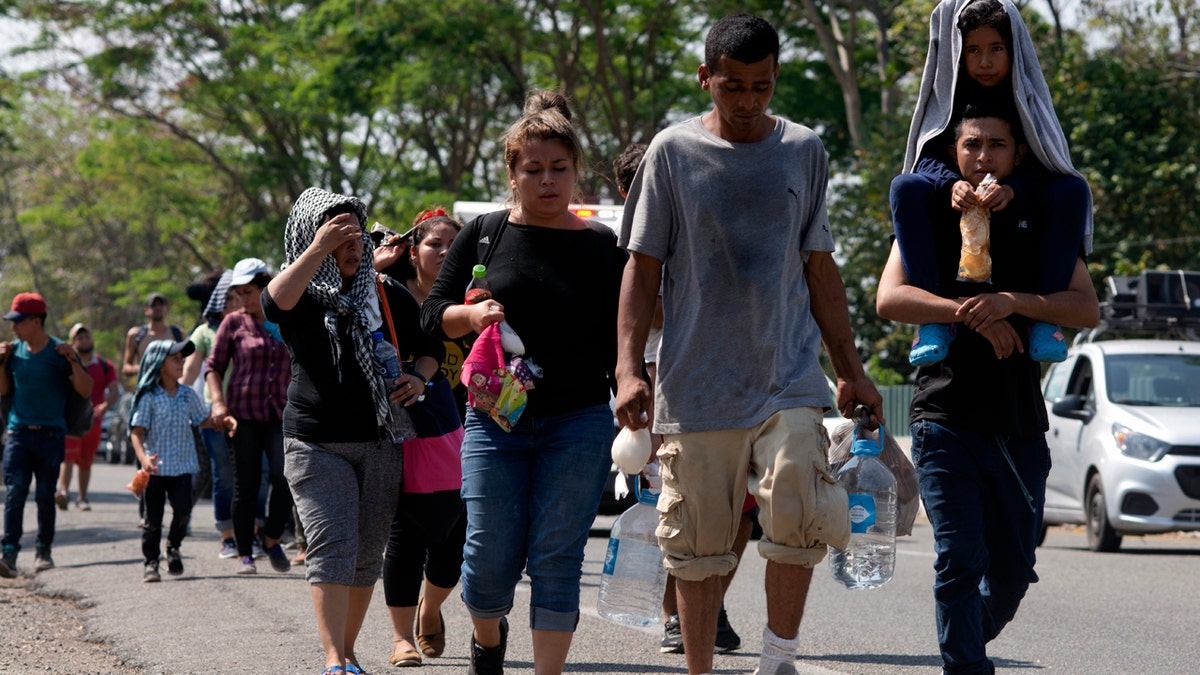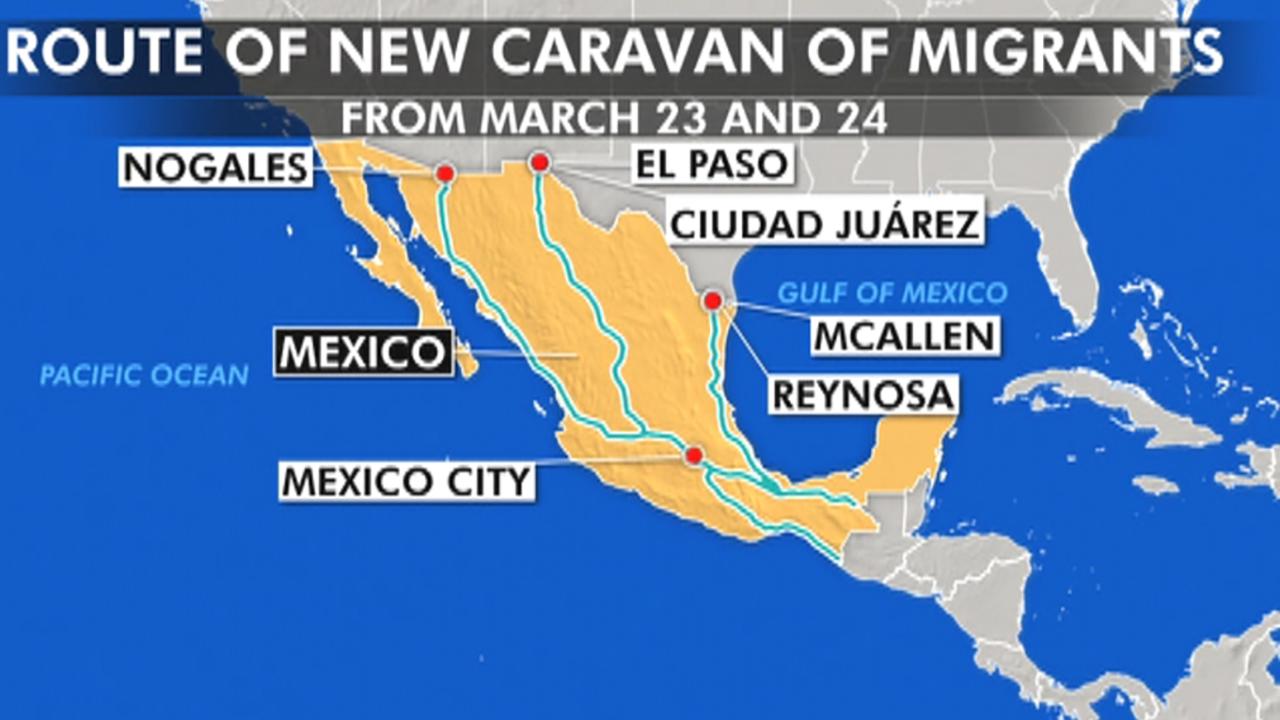
Central American migrants on a road in Tapachula, Chiapas State, Mexico, Thursday. (AP Photo/Isabel Mateos)
Mexican officials said Sunday they will give out humanitarian visas on a "limited basis" to some of the roughly 2,500 Central American and Caribbean migrants gathered in the southern state of Chiapas.
The National Migration Institute (INM) said priority will be given to women, children and migrants over the age of 65 "whose situation merits" a visa. Distribution is scheduled to start Monday.
The statement came as President Trump has threatened to close U.S. border crossings with Mexico unless the country prevents thousands of Central American migrants from reaching the border, where they may either cross or request asylum. Current U.S. law does not require asylum seekers to present themselves at an official border crossing point.
On Sunday, Homeland Security Secretary Kirstjen Nielsen tweeted: "The security and humanitarian crisis at our southern border is getting worse every day." Nielsen said last week her agency apprehended more than 75,000 migrants at the U.S. southern border in February, a 12-year high.
"[Trump] and I have been warning Congress that failure to fix our immigration laws would be catastrophic...now here we are, in the middle of a catastrophe," Nielsen tweeted Sunday. "This is not the time to be partisan. Now is the time to act decisively to address the crisis.
"I will say it again & again & again," Nielsen added, "failure to act is putting lives at risk — especially children who are exploited, pawned & in some cases ‘recycled’ by smugglers & traffickers. Bad guys know our outdated laws & they're using/re-using children as a ‘free ticket’ into America."
Mexico has appeared to be both tiring of the migrant caravans and eager not to anger the United States. It has stopped granting migrants humanitarian visas at the border, and towns along the well-traveled route through southern Mexico sometimes no longer allow caravans to spend the night. Fewer private citizens have been offering food and rides to weary travelers.
CLICK HERE TO GET THE FOX NEWS APP
The INM said Sunday it would provide bus transportation back to Guatemala, El Salvador and Honduras for citizens of those countries, and air transport home to migrants from Cuba, Haiti and Nicaragua. Beginning in the second half of May, the agency said Mexico would issue humanitarian visas in the capitals of El Salvador, Guatemala and Honduras -- as well as in San Pedro Sula, Honduras --- "for cases that merit this condition." Mexico has indicated it also will continue to issue temporary work visas in those cities for Central Americans wishing to live and work in southern Mexico.
The goal of the visa restrictions, the institute said, has been to achieve a more orderly, regulated and safe international movement of people. The largest of last year's migrant caravans through Mexico contained about 7,000 people at its peak.
The Associated Press contributed to this report.









































